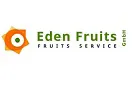Early December saw the first Algerian organic dates of the new harvest being offered to the European market. "Due to the climatic conditions, the campaign started a little later than last year. Nevertheless, the average yield per palm tree is 10 percent higher than last year. In terms of quality, the dates are a little softer this year, which is again due to the rains in September," outlines Mohamed Saber Hamidi of Eden Fruits, based in Kehl, Germany. In terms of demand, there have been no major changes compared to the previous year and prices are also largely stable, he continues.

The company is dedicated to the procurement and marketing of organic dates, mainly from its own production in Algeria. There is strong competition from Tunisia, where the Deglet Nour variety is also grown. Furthermore, Algerian goods compete with dates from the Middle East and Pakistan, especially in the field of dried fruits for industrial purposes, says Hamidi. "Last year, we offered our customers organic dates of Algerian origin until October. Due to a certification failure, we were forced to stop selling Naturland products in August. However, a new audit is planned for this year."

Mandatory certification endangers quantity availability
Sales of organic dates are growing in Germany, thanks in part to their versatile use in a wide variety of recipes, such as date syrup and date syrup sugar. Hamidi: "However, the new EU Organic Regulation 848/2018, which requires certificates for every producer with an area of more than five hectares, could have a negative impact on the availability of organic dates in the near future."
In Algeria, Eden Fruit mainly works with small-scale organic and Naturland organic farms, Hamidi continues. "These are family businesses that have existed for over 100 years and often work without individual ownership certificates. In addition, the farmers' level of education is generally low, which in turn makes it difficult for them to adapt to the new requirements in terms of hazard analysis, risk management, and food fraud prevention. By comparison, producers in developing countries such as Algeria and Tunisia do not have the same intellectual and educational level as those in Western Europe. Therefore, special support is needed to help them adapt to today's standards."

The Eden Fruits team at BioFach 2024.
Exploring further growth potential
Nevertheless, the management of Eden Fruits sees further growth potential for Algerian Naturland organic dates in Germany. "The increasing consumer awareness of healthy and sustainable nutrition, coupled with the growing interest in exotic products, is contributing significantly to further growth. With appropriate training and support programs, Algerian producers can not only comply with the new regulations but also benefit from this growing demand and increase their sales," he concludes.
Visit the company at BioFach: Hall 7A-301.
Photo credit: Eden Fruits / Ziban Garden
For more information:
Mohamed Saber Hamidi
Eden Fruits
Bierkellerstraße 18
77694 Kehl
Tel: +49 (0)7851 6 36 71 67
E-Mail: [email protected]
ww.edenfruits.de
